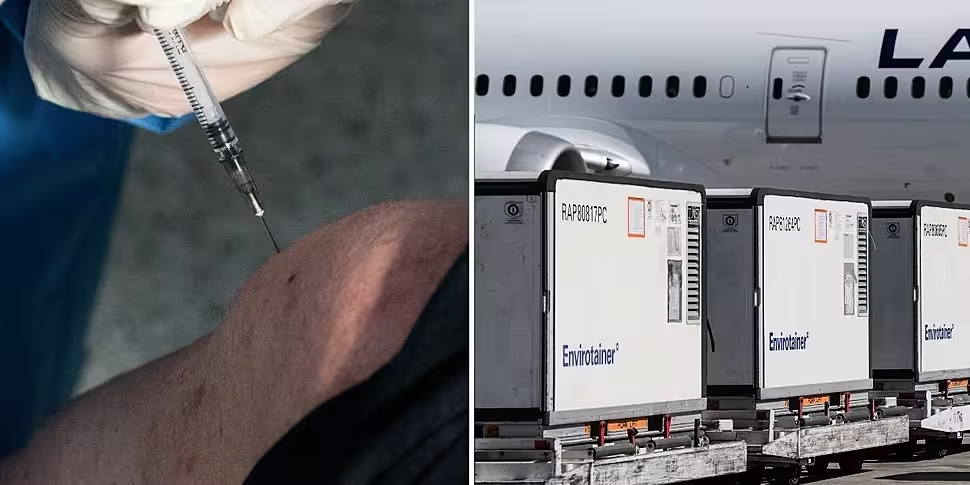It could take up to three years for the world's population to be vaccinated at the current rate, according to the head of Oxfam Ireland.
It comes as the World Health Organisation (WHO) called on wealthy countries to suspend the use of COVID-19 vaccine 'booster' shots until at least the end of September.
WHO Director-General Dr Tedros Adhanom Ghebreyesus says the focus must now be on getting more vaccines to low-income countries.
The Government here has said Ireland could start administering boosters as soon as next month, while Israel has already become the first country to start giving booster shots to older and vulnerable people.
However, data shows a stark difference in vaccination rates globally.
Many low-income countries - including many in Africa, south-east Asia and the Middle East - have vaccinated only a small percentage of their population to date.
CEO of Oxfam Ireland, Jim Clarken, told Newstalk Breakfast that Ireland needs to change its position.
"We all know that COVID's not gone away - 100,000 people are dying of the disease every week.
"Just 1.2% of the population in developing countries have been vaccinated so far, so we're a very long way from having a reasonable number."
A number of non-profit groups, the People's Vaccine Alliance, have come together calling for vaccine equality.
Mr Clarken says poorer countries cannot compete.
"We see that there's a huge inequity in the way that the vaccines are being shared and distributed.
"At the start of all this, if you recall, the wealthiest countries in the world were competing with each other essentially - but also competing with poor parts of the world to shore up as much vaccine as they possibly could.
"The key point is that a very large part of the population of the world has not been vaccinated, and won't be vaccinated at the rate we're going, for another two or three years possibly."
Intellectual property waiver
He says there needs to be a waiver on intellectual property rights by pharmaceutical companies, and that World Trade Organisation (WHO) trade rules could help.
He believes such decisions may, ultimately, be taken out of the hands of big pharma.
"There is a clause to allow a temporary waiver for just such an event as a pandemic... that would allow the intellectual property be shared with companies across the world.
"It's not necessarily their choice - it's very important to remember that more than $100bn of public money was invested in the creation of these medications.
"So it wasn't the normal circumstance where the pharma industry take all the risks - they didn't take all the risk - the demand was already there, the market was already set up for them plus they got huge amounts of public money.
"But ultimately, unless we get the demand side sorted we won't be vaccinating most of the world for a very long time.
"Ireland and the EU currently are resisting this, they're not supporting it.
"Although the US are already supporting it, and over 100 countries are supporting it - Ireland needs to change its position".









